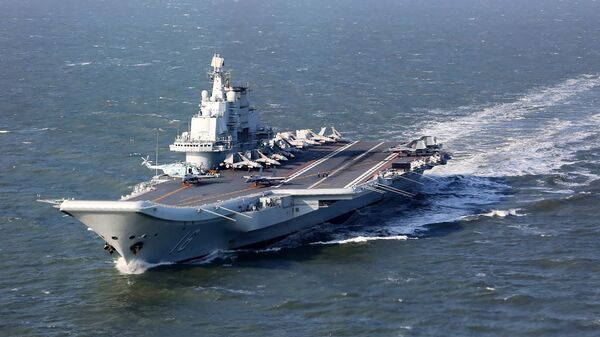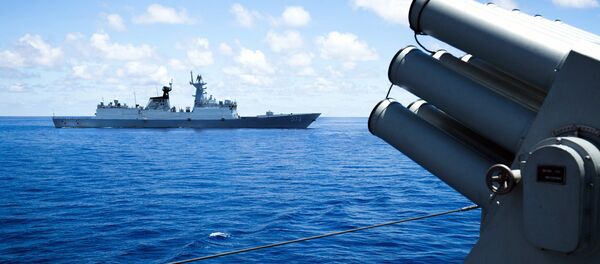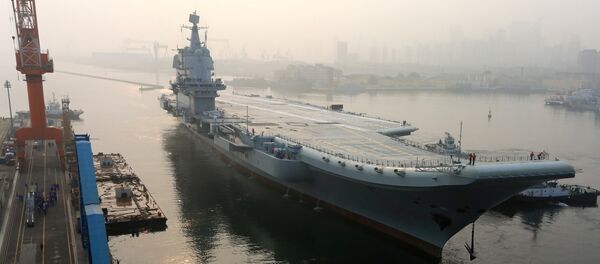The People's Liberation Army-Navy has plans to build three large aircraft carriers in addition to the Liaoning, a carrier whose frame was built in the former Soviet Union before being purchased and retrofitted by the Chinese. Each follow-on carrier to join the Liaoning in the Chinese carrier fleet is at various stages of development and construction, with the Type 001A, the country's first domestically built carrier, already past its first sea trials.
In addition to the heavy duty carriers, though, the Chinese navy has several smaller aircraft carriers in development similar to the America-class and Wasp-class ships operated by US Marines and the US Navy, military analyst Abraham Ait wrote in a report published by the Diplomat June 30.
With more aircraft carriers, China can more closely match the US' naval force point for point in waters close to China, even though the US Navy commands 20 aircraft carriers, including the Nimitz, America and Wasp class, and is working on a new Ford-class series.
Smaller amphibious assault ships like the America and Wasp class ships, which can also carry fighter jets, are nothing to sneeze at. Chinese shipyard workers have started assembling "three amphibious assault ships — 40,000-ton warships approximately the same size as the French carrier Charles De Gaulle," the Diplomat report notes, adding that the ships are "almost identical in size and appearance" to the US'. That's twice the size of the United Kingdom's Invincible-class aircraft carriers.
According to the analyst's view, "With the US Navy today increasingly stretched between several major fronts, and set to potentially escalate its involvement in the Middle East in light of growing tensions with Iran, matching a Chinese fleet of seven carrier warships… will be a highly strenuous task."
Furthermore, these plans for expanding only concern the next seven years. Given that China's military budget is growing around 7 percent annually, the analyst writes, "the PLA-N has room to induct more carriers, both assault ships and conventional larger vessels, after 2025."




